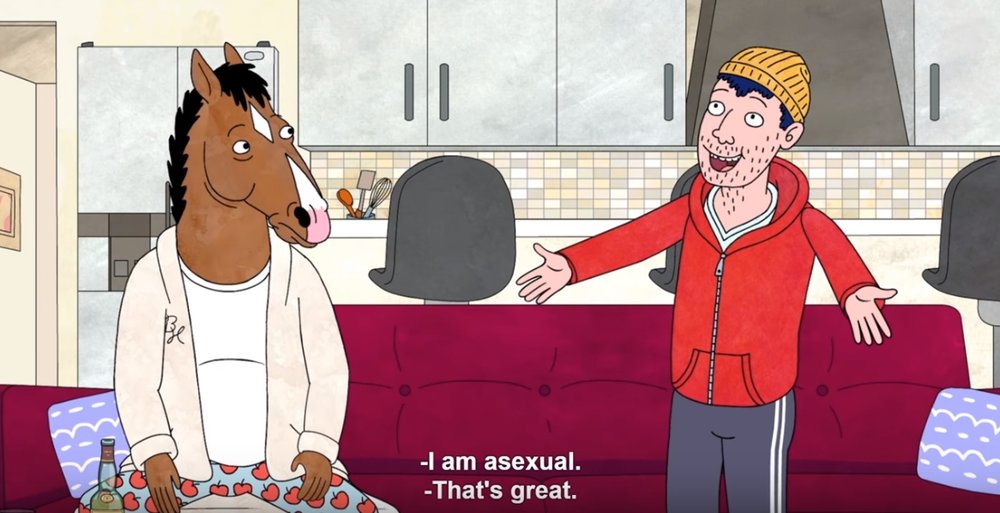Netflix’s BoJack Horseman was quickly put on many people’s radars when the newest season released in September addressed asexuality. During the new season, Todd Chavez explicitly comes out to BoJack saying that he is asexual. As someone who is asexual, this representation means a lot to me. Not only am I actually being represented, but he specifically said the word asexual multiple times. Even though it had seemed the series was building to this scene, I still did not expect it to deliver. It was first indicated during the season three episode “Love And/Or Marriage,” when Todd rejected having sex with his friend, Emily. Initially watching this scene I did not have asexuality on my mind. I just came to terms with the fact that asexuality was something that would never be represented in media. Naturally, I explained it away as Todd likely being interested in another person and feeling like he would be “cheating” on said person if he were to sleep with Emily. But this arc gets a more definitive continuation in the season three finale, “That Went Well,” when Todd tells Emily, “I’m not gay. At least I don’t think I am, but I don’t think I’m straight either. I don’t know what I am. I think I might be nothing.” This scene and everything it stands for took BoJack Horseman from a show I enjoyed to one of my favorite shows of all time. Throughout the yearlong wait for season four, I constantly watched this scene. I rewatched it at least once a week, and more often than not, I cried while watching…
Why BoJack Horseman’s Representation of Asexuality is Important
This article is a repost promoting content originally published elsewhere. See more things Dan's reposted.

0 comments